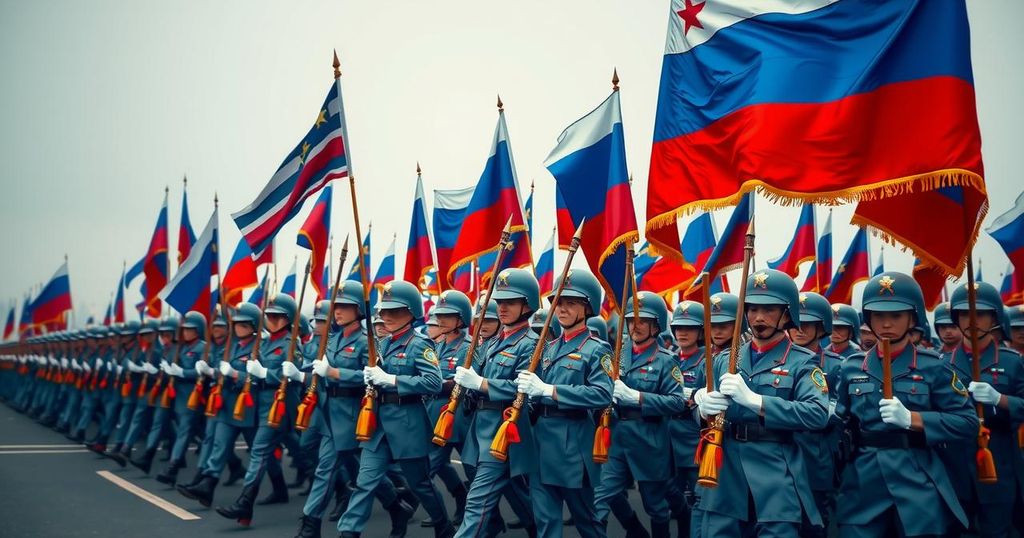Potential North Korean Troop Deployment to Support Russia Raises Concerns

North Korea may consider sending up to 100,000 troops to support Russia in the Ukraine conflict, with potential deployments occurring in phases. The shift signifies deeper military cooperation, prompting concerns among Ukraine’s allies about escalating tensions in Europe and the Indo-Pacific region. China’s role as an intermediary amid its own geopolitical challenges adds to the complexity, highlighting the importance of diplomatic engagements to prevent further escalation.
Recent analyses suggest that North Korea may consider sending approximately 100,000 troops to support Russian President Vladimir Putin in the ongoing conflict in Ukraine. Such military assistance, as discussed among unnamed sources, is not expected to happen immediately but could occur in phases with troops rotating over time instead of a mass deployment. Kyiv’s ambassador to South Korea echoed these sentiments, predicting the deployment of about 15,000 North Korean soldiers in regions like Kursk and occupied eastern Ukraine on a rotation basis every few months. Concern regarding this development arises among Ukraine’s allies, who warn that increased cooperation between Kim Jong Un and Vladimir Putin could further escalate the already significant conflict in Europe. This cooperation threatens to shift the security balance in the Indo-Pacific region amidst rising tensions between the United States and China. German Chancellor Olaf Scholz is set to discuss this escalation with Chinese President Xi Jinping during their upcoming meeting, emphasizing the need for diplomatic efforts to prevent the conflict from expanding globally. The deployment signifies a growing global dimension to the war, prompting allies at recent diplomatic gatherings, such as APEC, to express their worries. Xi Jinping, seen as a key supporter of both leaders, has publicly refrained from commenting on North Korea’s troop deployment, suggesting potential discomfort with the arrangement. Such actions could additionally impose economic pressures on China, especially as Xi faces challenges related to US tariffs. Beyond personnel, North Korea has already contributed significant military resources, providing Russia with munitions and critical weaponry systems. Ukraine continues to call for Western support, advocating for advanced weaponry to strike deep within Russian territory and counter the ongoing offensives directed at its energy infrastructure. Understanding these dynamics is crucial as they shape not only regional stability but also international relations as the war unfolds.
The relationship between North Korea and Russia has grown increasingly complex as both nations navigate their positions on the global stage. President Putin’s war in Ukraine has prompted international concerns over military alliances that may exacerbate existing conflicts. The involvement of North Korean troops signifies a potential shift in military strategy, raising fears about the implications for not only European security but also the broader Indo-Pacific balance. Furthermore, the response from global powers like China showcases the intricate dynamics at play, where alliances could redefine existing geopolitical landscapes. Given historical precedents, North Korea’s military support for Russia could potentially receive reciprocal assistance in terms of technology and military capabilities, further complicating international relations. As global tensions mount, understanding this aid exchange is essential in framing future policies and engagement strategies.
In conclusion, the potential dispatch of North Korean troops to support Russia’s military operations underscores the evolving dynamics of global conflict. While immediate actions may not be imminent, the implications of such cooperation are significant for European security and international relations. The interplay of military support, diplomatic negotiations, and regional security will require close attention from global powers, particularly as alliances shift and new dimensions of warfare emerge. Stakeholders must navigate these developments with caution to mitigate further escalation and preserve stability.
Original Source: m.economictimes.com






